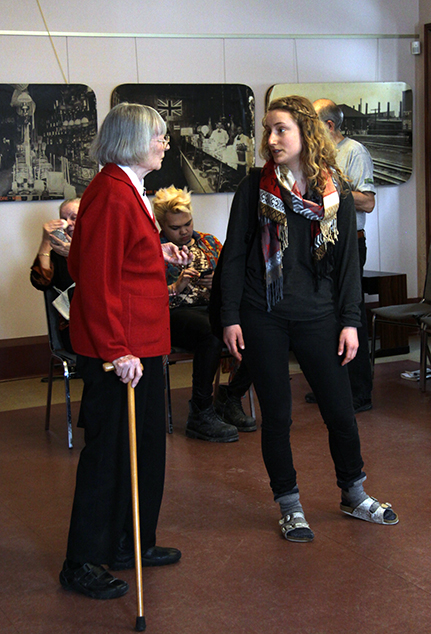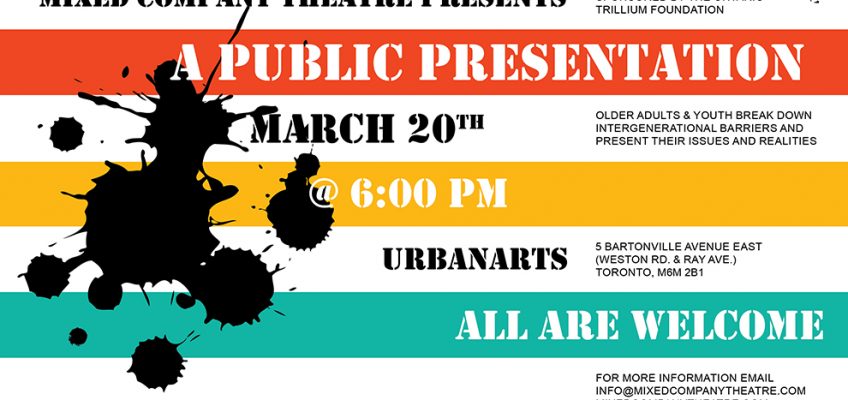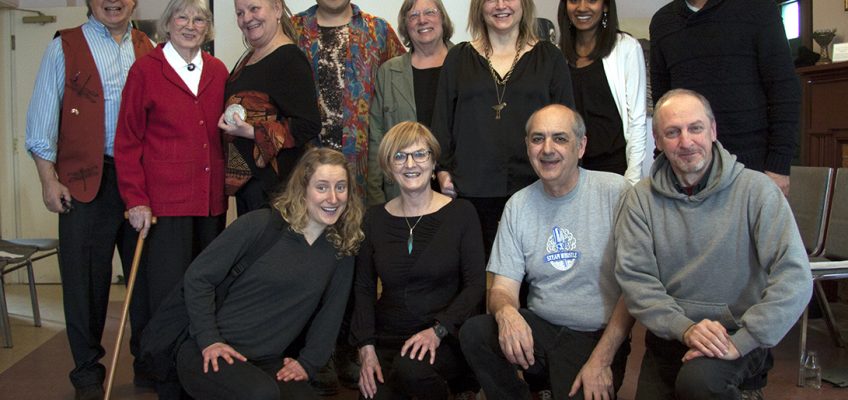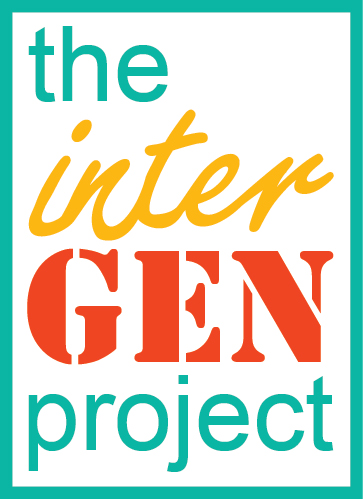Through a series of workshops, MCT facilitators carefully prepare participants to get into their bodies, to explore their identities, and to develop deeper connections with themselves and each other. Amelie Sterchi participated in a series of interGEN workshops and played the role of Kate in the recent performance of ‘C’mon Granny.’ The character of Kate was created based on experiences that many of the older adults shared during the workshops. Stories of marginalization, exclusion and abuse of power surfaced as participants reflected on their experiences through various activities. Amelie reflected on what it was like to prepare for this forum theatre performance:
“The workshops were really intense. It involved bringing energy in and drawing energy out at the same time. By doing the exercises with the community members, I started feeling closer to them. We were slowly building trust towards each other. Sharing personal stories brought up a lot of emotions, as we were all going on a journey into ourselves—individually and as a group. It was a continuous flow of internal and external movements. Looking into your inner self to find a story, a song, an action, an image and bringing those to the group. The workshops allowed everyone to be creative and open. All the different exercises brought us to get to know each other better and to discover and use our skills.”
In forum theatre ‘finding the light at the end of the tunnel’ involves seeing the story transform and evolve into a positive ending. It also involves the exploration of different options for responding to oppression and ultimately engages everyone in deep, transformative, and creative self-exploration.
Just because Amelie played the role of Kate doesn’t mean that she agreed with Kate’s perspectives and actions: to abuse her grandmother verbally and economically. In fact, Amelie did not agree with Kate’s actions—but she didn’t waver from her role, as she was committed to “rehearsing for reality”:
“When I was playing Kate, the granddaughter, I could really feel the tension rising towards me in the audience. It felt awkward…I tried to concentrate on how a teenager would feel about the interventions and the audience’ reactions and decided not going to let go of my ideas. I was playing a stubborn Kate who is very self-focused and doesn’t realize or doesn’t want to realize how aggressive and arrogant she can be. I accentuated my character’s oppressive side so the audience would react and jump in. At the end of the play, a member of the audience asked me if I was like Kate in real life and said she hoped I wasn’t! When “rehearsing for reality” the boundary between playing a role and just being yourself becomes a lot thinner. In forum theatre the audience is part of the play—they make changes, to play with situations and open up other possible solutions. I may have played Kate, but I definitely didn’t agree with her actions.”
Like Amelie, all of the participants in the interGEN older adult project expressed their joy in being part of the first performance of ‘C’mon Granny.’ Many of them felt they took risks, and delved into uncomfortable spaces, only to feel more comfortable and connected by the end of it. As one participant said, “he had set his feet on chaos!” another found comfort in “finally being able to see the light at the end of the tunnel.” However, the light continues to shine and expand in many different directions, as the interGEN project continues to engage more youth and older adults in different communities and contexts.
It’s not too late to join and have your chance to play your part. Kate and her Granny, Lucille, will perform again today, alongside a new performance created by a group of youth in Toronto: together they will tell each other their stories—and everyone will have the opportunity to join this intergenerational dialogue. The performance will begin at 6 pm at Urban Arts in Toronto.
This post was contributed by Amelie Sterchi– (Currently working at MCT through an international Student internship from Switzerland), and Christina Parker (Volunteer researcher for MCT’s interGEN project).





